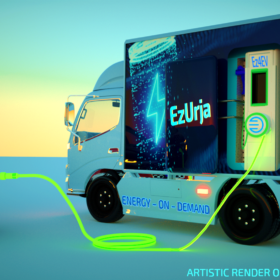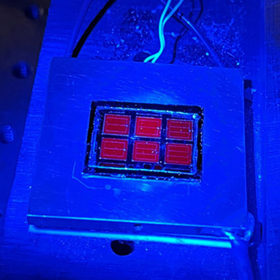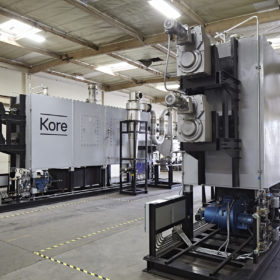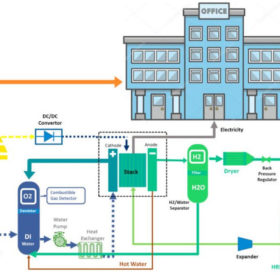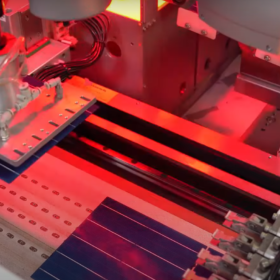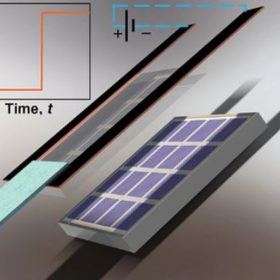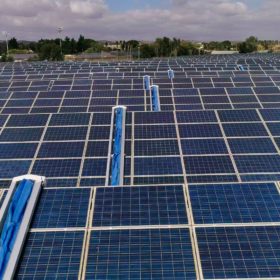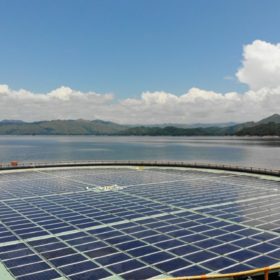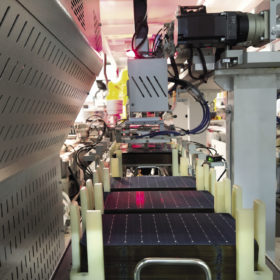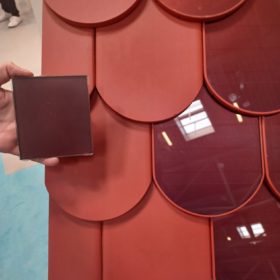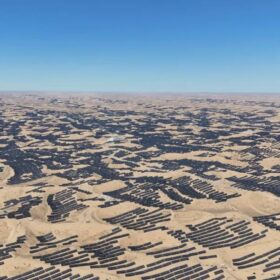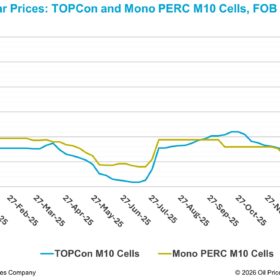Solar/CNG/CBG powered EV charger with integrated battery storage
Energy management startup Ez4EV has introduced an electric-vehicle charging solution with integrated battery storage. The complete unit-in-a-box can be charged using electricity produced from solar, compressed biogas, and compressed natural gas.
Quantum well superlattices for a new world record cell efficiency of 39.5%
Scientists in the United States have fabricated a triple-junction solar cell that reached 39.5% efficiency – a world record for any type of cell under one-sun illumination. Though relying on materials and processes that are still too costly for most commercial uses, the concept could soon see actual applications in powering satellites and other space-bound technology.
New method could potentially produce hydrogen from biogas for $2/kg
Kore, an energy startup in California, has developed a new way to produce hydrogen from biogas, and is now poised to build a commercial-scale demonstration facility in Los Angeles. It said half of the carbon in the feedstock can be converted into gas, while the other half can be converted into solid elemental carbon char.
Cost comparison between lithium batteries, fuel cells, reversible solid oxide cells as storage for off-grid rooftop PV
Scientists in the United Arab Emirates have looked at how off-grid rooftop PV could be combined with batteries, fuel cells or reversible solid oxide cells for energy storage. The modeling assumed a typical commercial building in Los Angeles.
Waaree secures $2.37 billion of orders for 5 GW of bifacial PV modules
Indian solar manufacturer Waaree Energies has secured domestic and international orders to supply 5 GW of its bifacial 540 Wp and 600 Wp solar panels.
‘Pulsed Joule heating’ tech to remove snow, frost, ice from solar modules
US scientists have developed a way to remove snow and ice from solar panels at a much faster rate than conventional approaches. It is based on a glass coating on a film with high optical transparency and superhydrophobicity.
Airtouch Solar to supply solar-cleaning bots in India
Israel-based Airtouch Solar has signed a $940,000 contract with Indian developer Hero Future Energies, three weeks after securing a $440,000 project with another developer in India.
Small-scale floating PV with pumped hydro storage
Indian scientists have developed a system under which a pumped-hydro facility stores grid electricity during off-peak hours by pumping water to an upper reservoir. During peak hours, the system feeds the load, rather than taking power from the grid.
The long read: Decision time for India’s solar manufacturing plans
India is expanding solar cell production capacity in a big way. Will manufacturers go down the established mono PERC route or leapfrog to advanced n-type technologies? Uma Gupta investigates.
Terracotta solar tiles for historical buildings
Germany’s paXos, whose solar roof tiles were bought by Meyer Burger and unveiled last year, has shown off its new “Beaver Tail” terracotta solar tiles at Intersolar 2022.
